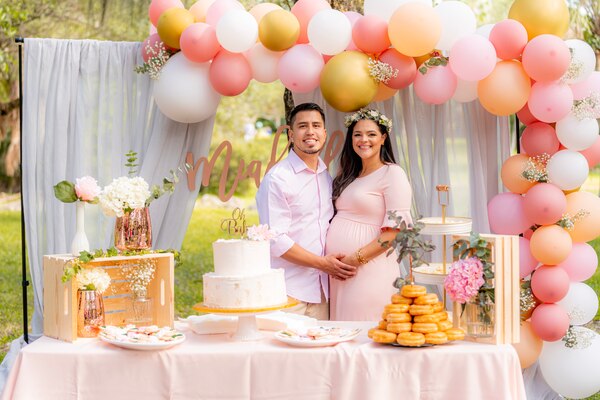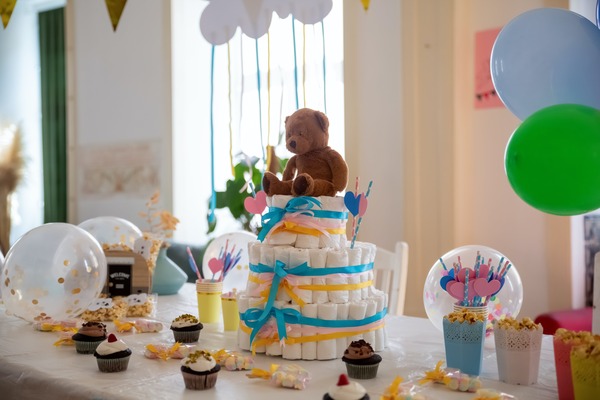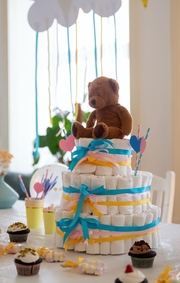7 Things to Know About Organizing a Wonderful Baby Shower
A baby shower is a time-honored tradition that celebrates the impending arrival of a new life, offering an opportunity for expectant parents to gather support from their loved ones. While the origins of this practice are somewhat nebulous, evidence suggests that ancient cultures engaged in similar rituals, with the Greeks and Egyptians hosting ceremonies to honor both the mother and child.
Over time, this practice evolved, moving from post-birth celebrations in the Middle Ages to the modern pre-birth parties we are accustomed to today. In contemporary society, baby showers have taken on a pivotal role, serving not just as a platform for presenting gifts, but also as a means to equip expectant parents with valuable advice and emotional support.
As we delve into the intricacies of organizing a wonderful baby shower, it’s important to appreciate the historical and societal significance of this celebratory event.

1. Understand the Expectant Parents’ Preferences
Before planning the baby shower, it’s essential to consult the expectant parents about their preferences. This includes the theme, guest list, food, and location. Their comfort and happiness should be the paramount consideration. Furthermore, if you are the parents that are holding the shower, the gifts you want may be different from those that are expected. Therefore, it’s vital to communicate clearly and strive for a conscientious understanding of expectations. Most importantly, do not impose your own ideas and preferences on the expectant parents, as this may cause unnecessary stress and disappointment.
2. Choose a Suitable Date
The baby shower is normally held when the mother-to-be is around seven months pregnant. This is a safe period before the baby is born but still close enough that the pregnancy is in full bloom. However, make sure to check with the expectant parents for any scheduling conflicts or personal preferences. Consider holding the baby shower on a weekend so that guests can attend without taking time off work. For example, a Sunday brunch or afternoon tea is a popular choice for baby showers. If the expectant parents have cultural or religious restrictions, be mindful to respect their beliefs and choose a date that is suitable for them.
3. Send Invitations in Advance
Ensure to send out invitations at least a month prior to the event. This gives guests ample time to RSVP, plan their schedules, and shop for gifts. When creating the invitations, include essential details such as the date, time, location, theme (if any), and registry information. You can send out paper invitations or opt for electronic ones, depending on your budget and preference. However, it’s always a thoughtful gesture to mail paper invites to grandparents-to-be and close friends who may not be tech-savvy.
4. Decide on a Theme
A theme could be as simple as a color scheme or as elaborate as a fairy-tale setting. It’s important to involve the expectant parents in choosing the theme, as well as consider their likes and dislikes. You can also ask guests to dress according to the theme for added excitement. Some popular themes include woodland animals, book characters, and even Disney movies. While it takes a bit more effort, themes can easily make your baby shower much more memorable for your guests!

5. Plan Games and Activities
These should be light-hearted, easy to understand, and inclusive for all attendees. Some ideas include guessing the baby’s birth date and weight, creating a baby name list, or even having a DIY onesie decorating station. Make sure to also have some downtime for guests to mingle and chat with the expectant parents. From sharing parenting advice to recounting funny baby stories, this is a precious opportunity for everyone to bond and support the new parents. Furthermore, don’t forget to have a designated photographer to capture these precious moments.
6. Food and Decorations
The food and decorations should align with the theme. Consider dietary restrictions and preferences when planning the menu — resources like Serenity Kids’ Baby Shower Food Ideas can offer inspiration for wholesome and thoughtful options. You can also add a personal touch by incorporating family recipes or traditional dishes. As for decorations, you can DIY or purchase pre-made ones to match the theme. Adding personalized touches, such as baby photos of the expectant parents, can make the event even more special. Furthermore, don’t forget to have a designated area for gifts and a cute table set up for the cake and desserts.
7. Gift Registry
A gift registry can be beneficial for both the guests and the parents-to-be. It ensures that the gifts are useful and appreciated. A gift registry also prevents duplicate presents. Moreover, it’s a helpful tool for guests who may not be familiar with what the expectant parents need or want. Be sure to include items that are practical and necessary for the baby’s arrival, such as diapers, wipes, and onesies. Still, also includes some fun and personal items like books and toys.
All in all, organizing a wonderful baby shower requires careful planning, open communication, and a genuine desire to make the expectant parents feel loved and supported. Afterall, this is the beginning of a wonderful lifelong journey as they nurture and watch their baby grow and develop.
With these 7 things in mind, you can create a memorable and heartwarming celebration for everyone involved. Remember, it’s not just about the gifts or decorations – it’s about celebrating new life and showing love for the growing family.




